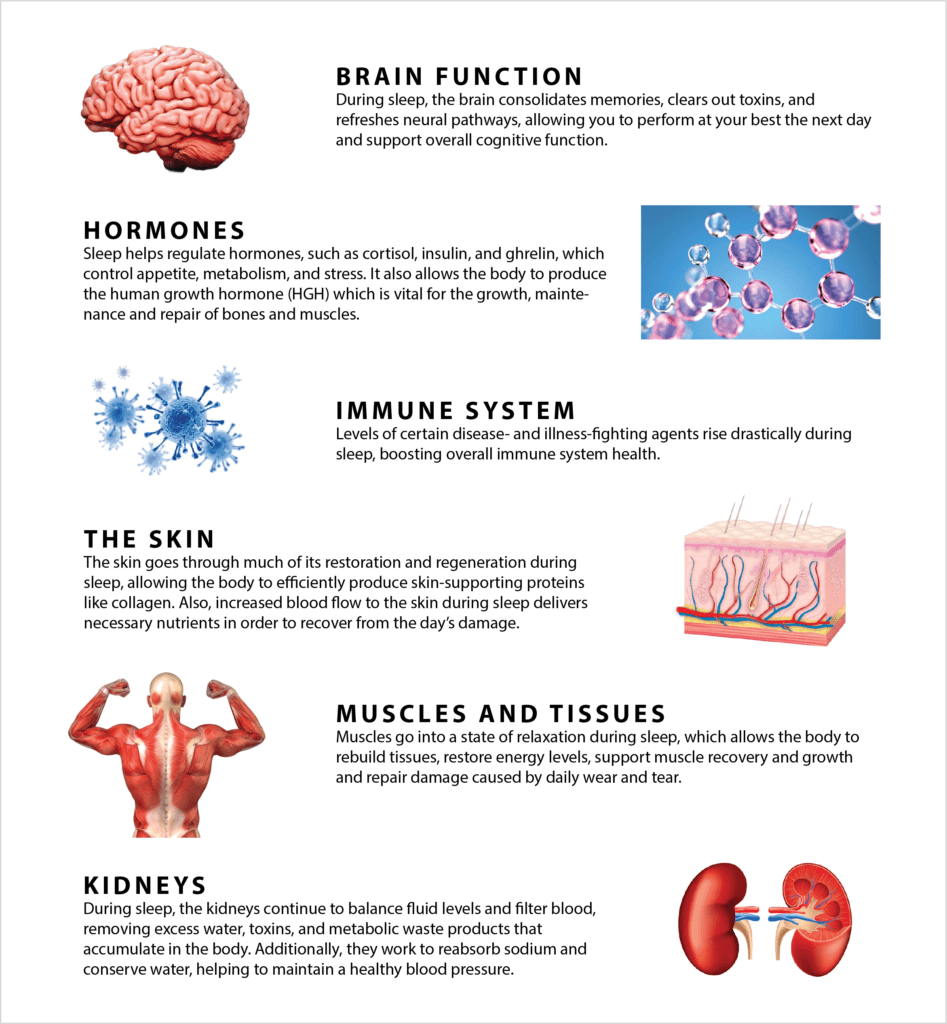Sleep is considered to be the third pillar of health, alongside exercise and nutrition. Yet, 1 in 3 Americans do not get the recommended amount of quality sleep on a daily basis, and only 32% of Americans consider their sleep “excellent” or “very good.”1 Sleep is an essential part of our lives, taking up a third of our day, and getting a good night’s sleep is crucial for overall health and wellbeing.
The Importance of Getting Enough Quality Sleep
While there is no magic number when it comes to how much sleep we need, most experts agree that adults should aim for 7-9 hours of sleep each night to help ensure that the body has enough time to go through necessary biological processes — brain and body maintenance functions that cannot be performed while we are awake. Yet, many people fall short of this target, often sacrificing their sleep to meet work, social, or personal obligations.
Shortchanging sleep can have serious consequences, affecting energy levels, immune system, cognitive function, hormone regulation, and mood.
While the mind is resting, numerous biological processes are hard at work during the night shift. As we sleep, the body:
- Restores energy
- Repairs and regenerates cells
- Removes toxic waste
- Stores new information
- Processes and consolidates memories
What is actually happening during those 8 or so hours of sleep?

As a result, sleep improves our physical strength, endurance, and reaction time, regulates mood and hormones (particularly those that control stress, metabolism and appetite), supports immune system function and improves cognitive abilities, including memory, concentration, and problem-solving skills.
Not getting enough sleep can have a range of negative effects on our health, from weakening the immune system to increasing risk of developing chronic health conditions.2
6 Tips for Getting a Good Night’s Sleep
For those struggling to get enough sleep, here are 6 tips to improve sleep habits.
- Stick to a sleep schedule – Go to bed and wake up at the same time every day, even on weekends.
- Create a relaxing sleep environment – Ensure the bedroom is cool, quiet, and dark, and remove any distractions such as TVs or phones.
- Limit caffeine and alcohol intake – Avoid consuming caffeine or alcohol in the evening, as these can interfere with sleep.
- Exercise regularly – Try moderate aerobic exercise 5 days a week at least 3 hours before bedtime to avoid disrupting sleep.
- Practice relaxation techniques – Make use of meditation, deep breathing, and progressive muscle relaxation.
- Consider supplements – Take a natural sleep aid to promote restful and restorative sleep
Getting a good night’s sleep is essential for maintaining health and wellbeing. With over 84 million Americans struggling with sleep issues, it is time to prioritize this pillar of health just as much as exercise and nutrition. Educating patients on the significance of sleep health and debunking the common misconception that sleep is “just down time” may be a good place to start.
References
1. “The State of Sleep Health in America in 2023.” SleepHealth, American Sleep Apnea Association, 20 Mar. 2023, https://www.sleephealth.org/sleep-health/the-state-of-sleephealth-in-america/.
2. “Why Is Sleep Important?” National Heart Lung and Blood Institute, U.S. Department of Health and Human Services, 24 Mar. 2022, https://www.nhlbi.nih.gov/health/sleep/why-sleep-important.

